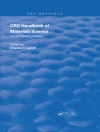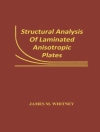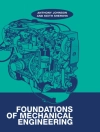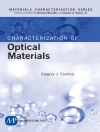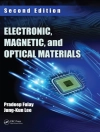During its life cycle, a product produces waste that is over 20 times its weight. As such it is critical to develop products that are sustainable. Currently product development processes lack high quality methods and tools that are empirically validated to support development of sustainable products. This book is a compilation of over forty cutting edge international research papers from the 22nd CIRP International Design Conference, written by eminent researchers from 15 countries, on engineering design process, methods and tools, broadly for supporting sustainable product development.
A variety of new insights into the product development process, as well as a host of methods and tools that are at the cutting edge of design research are discussed and explained covering a range of diverse topics. The areas covered include:
Sustainable design and manufacturing,
Design synthesis and creativity,
Global product development and product life cycle management,
Design for X (safety, reliability, manufacturability, etc.), and
Design taxonomy, ontology and standards.
CIRP Design 2012: Sustainable Product Development provides researchers in design, engineering and sustainability access to some of the latest, quality research in this area. Practitioners and educators of engineering design and sustainability will find an empirically validated suite of methods and tools that can be applied and taught to develop their practices.
Mục lục
Part 1. Design Theory, Methodology and Research Methodology.- Part 2. Creative and Inventive Design (TRIZ).- Part 3. Enabling Technologies & Tools.- Part 4. Global Product Development and PLM.- Part 5. Design For X (Safety, Manufacture, Assembly, Cost, Risk, Reliability, Modularity, etc.).- Part 6 Sustainable Design and Manufacturing.
Giới thiệu về tác giả
Amaresh Chakrabarti is a Professor of Engineering Design at Centre for Product Design and Manufacturing at Indian Institute of Science, Bangalore. He has a BE in Mechanical Engineering from University of Calcutta, India, ME in Mechanical Systems Design from Indian Institute of Science, Bangalore, and a Ph D from University of Cambridge, UK in Engineering Design. After Ph D, Prof. Chakrabarti led for ten years the Design Synthesis team at the EPSRC Centre for Excellence Engineering Design Centre at the University of Cambridge, before joining Indian Institute of Science. Prof. Chakrabarti has worked extensively in the areas of design synthesis and creativity, eco-design and sustainability, and knowledge engineering and management, and has written over two hundred papers in peer-reviewed journals, conferences and books.
He has written/edited six books, two of which have been published by Springer. He is the co-author of DRM – a design research methodology used widely around the world as a framework for carrying out engineering design research. Prof. Chakrabarti is an Associate Editor of AI EDAM Journal (Cambridge University Press), Area Editor for Research in Engineering Design Journal (Springer), Regional Editor for Journal for Remanufacturing (Springer), and Advisory Editor for Journal of Engineering Design (Taylor & Francis), Clean Technologies and Environmental Policy (Springer), International Journal of Design Creativity and Innovation (Taylor & Francis), and four other journals.
He is on the Advisory Board of Design Society, UK. He founded IDe ASLab – the first laboratory in India for research into design creativity, sustainability and innovation. A Member of the CII National Committee on Design, India, he is also Programme chair for International Conferences on Research into Design (ICo RD), and a vice-Chair for AI in Design (AID) and Design Computing and Cognition (DCC) Conferences. Prof. Chakrabarti is an Honorary Fellow of the Institution of Engineering Designers, UK.


